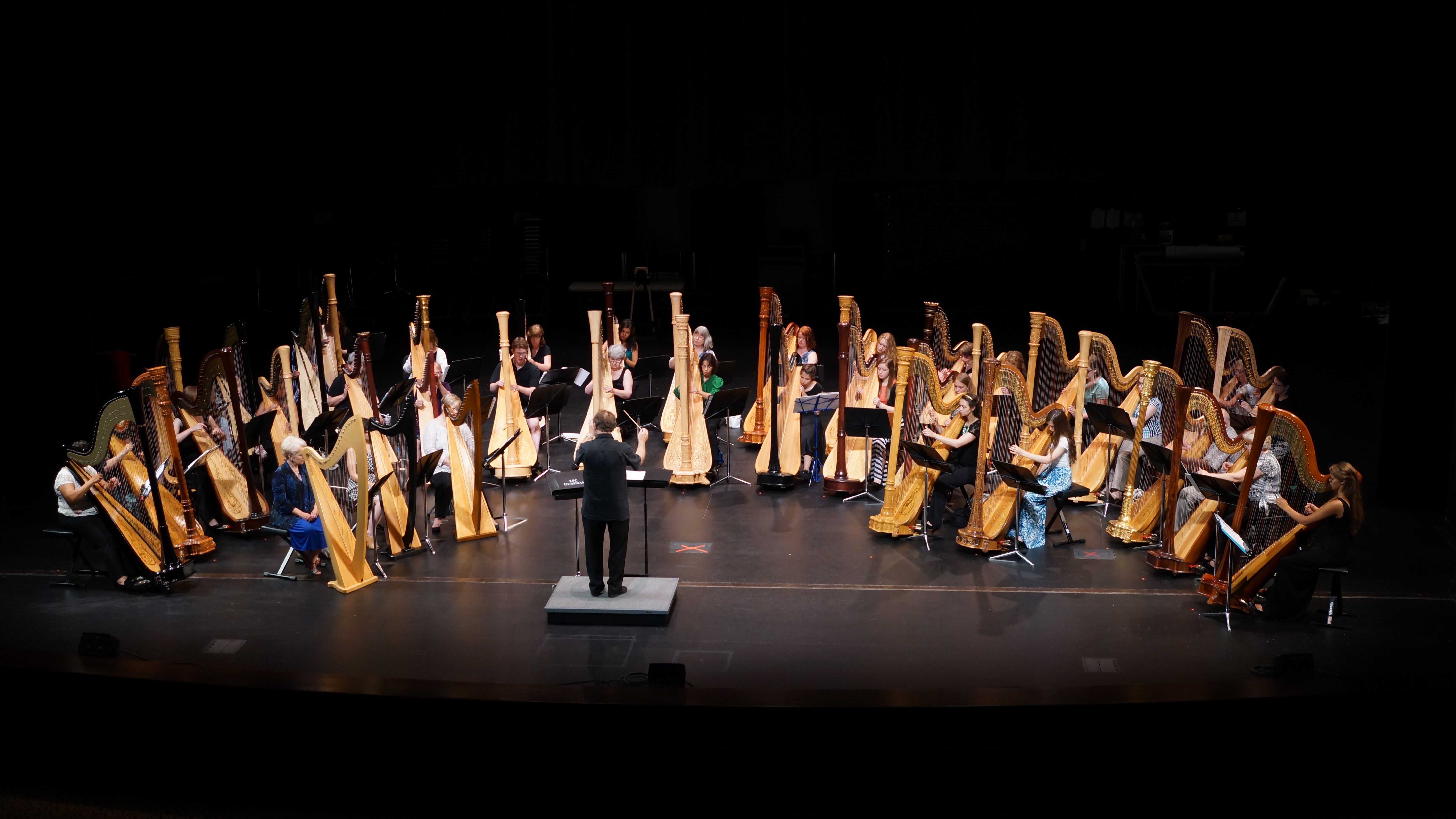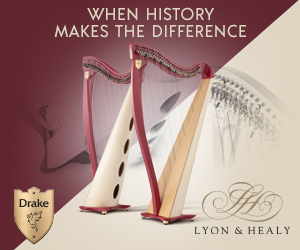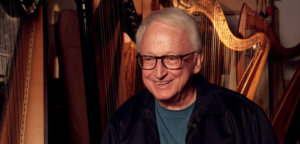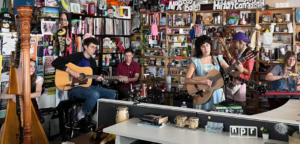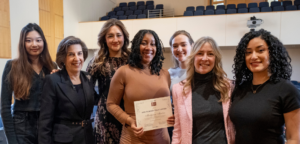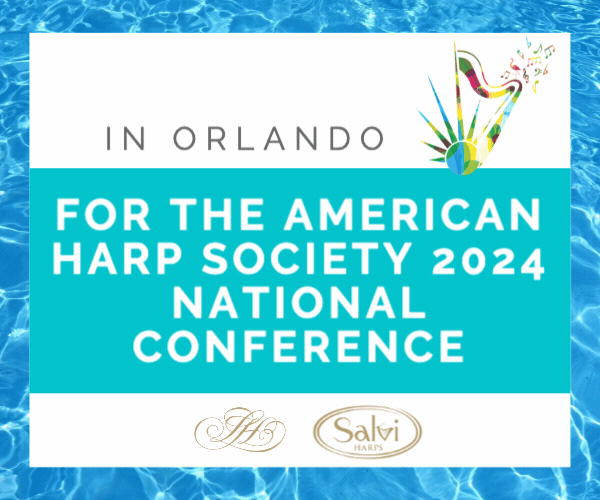The Midwest Harp Festival is in full swing this week at The University of Tulsa’s Lorton Performance Center. The annual event—now in its 16th year—grew from a local gathering put together by Lorelei Barton, who continues to serve as the festival’s director. We caught up with her to find out more about how the event has evolved over the years.
Tell us about the Midwest Harp Festival. How did it get started, and why?
With such a long 16-year history I will try to keep this short.
Prior the first public camp in 1999, I held a small version in my home for my own students of all ages for a couple of years. I saw the need for my students to meet other Oklahoma harp students and professional harpists outside of our area so, using my own personal funds and the few dollars the faculty concert generated, Suzann Davids and James Pinkerton helped me to establish the Tulsa Harp Camp. They received no compensation except travel fees for the first couple of years. They had such a heart for teaching the students and the students were very receptive to what we had to offer, but I saw the potential for growth and I was getting too busy to participate in the teaching and ensemble leading that we brought Courtney Hershey-Bress to the camp when salaries were finally established. By 2005 we established The Midwest Harp Academy as a non-profit so we could develop other harp related educational opportunities in the community and receive donations to help fund what had, by then, become the Midwest Harp Festival. The festival also had some minor turnovers in faculty to include Jody Guinn, Jan Jennings, Becky Baxter, and our current faculty, Mary Bircher, Faye Seeman, and Elizabeth Richter.
James was our harp technician while he was involved but when he left, Peter Wiley became our Harp Doc in residence with the exception of Steve Moss who subbed for him for a year. Having a harp technician on-site has proven essential to us and to the harpists in Oklahoma and surrounding states. Peter has become an integral part of the festival.
My assistants for the past 6 years, Sarah Oliver, Sarah Javaux, and Jaina Kreuger, have proven to be essential for the forward-momentum and every-day success of each festival. Lou Hurst has become our resident harp schlepper and tech. This is his first year as a harp participant!
We are in our 2nd year at the new, beautiful Lorton Performance Center at the University of Tulsa. We don’t miss having to move harps off-campus to other performing venues for our concerts and the Tulsa Community readily recognizes this performance facility as a comfortable place for attending our concerts. Everything is embraced in one building, making our festival even more efficient.
What is your mission?
Our mission is to reinforce and help develop music skills while teaching with methods of high standards. I, personally, have no tolerance for petty competitiveness. All are expected to encourage each other and support those who need reassurance, while healthfully praising those who have succeeded.
What are you most proud of about the festival?
I have had many people ask me about the festival and how they can start a program like ours. My answer will always continue to be the same. Foremost, you have to remain humble and keep “self” from influencing your decisions and be open to fresh ideas and suggestions without sacrificing the needs of the participants. This comes from a passion for teaching and helping harpists succeed. Secondly, I can’t tell you how to have this passion. You have to attend to gain the essence of what we do.
Our goal is to provide a relaxed atmosphere, while introducing fresh ideas. I hear back from participants that their experiences at the Midwest Harp Festival are fun, motivating, and challenging just enough to keep them interested but not overwhelmed.
Harpists of all ages work, perform, and collaborate together without getting in each other’s way. The younger students look up to the adults and the adults are inspired by the talent and fervor of the younger students. It works.
We have had students attend, coming with very little structure in developing their skills who, by the time they leave, have a fresh and new concept on what it takes to cultivate and grow.
I am also proud of our faculty and staff. The professional harpists on staff have all the harpists’ best interest in mind. We have several meetings throughout the week to be sure that we are doing all that is necessary to provide the musical nurturing that we aspire to provide each harpist.
Any performances you are particularly looking forward to this year?
ALL of them! As with when I program my own personal performances, I like programming the festival concerts in a way that the audience members will find something different each night they attend. And the programming for each performance is varied.
But, if I were to choose, I am really looking forward to our final Ensembles Concert on Saturday, July 25. We have hired a local music historian, Jason Heilman, to narrate the concert. His knowledgeable and clever narration work to pull together a performance. Even more exciting is the final number, “Die Moldau,” which was arranged by a talented musician, Michael Duff, from Chicago. Michael will be rehearsing and conducting his arrangement throughout the week. All the ensembles and faculty, 50 in number, will be on stage for this performance.
Can you describe this year’s event for people who may not be able to attend?
Our basic structure has not changed from over the years. We have ensemble rehearsals in the morning, workshops in the afternoon, a solo competition, 4 varied concerts, on-campus or near-by hotel housing, and a music store that features standard and new music composition/ arrangements from the nationally recognized harp music vendors. The last lunch period on Friday we offer café music at the college cafeteria. The students and professionals all have the opportunity to play gig music.
Any funny stories you can share with us about past events?
A few years back when we were still located at Oral Roberts University, there was an invasion of crickets throughout the campus (this IS the south). Faculty member Elizabeth Richter was the most horrified at having to share her room with these small, cute little insects. Knowing this, I collected a few live crickets in a clear deli cup and kept them in my office. I always present the faculty with a small parting gift at the end of the week banquet. When Elizabeth opened her gift, it was the cup of crickets, still alive. It was a good prank and appreciated hilariously by all.
When I was cleaning up at the end of the festival that year, I took advantage of a perfect photo op of a lone cricket sitting in a ray of light. I put the photo on Facebook with a “Goodbye ‘til next year” message.
What do you do when you’re not running the Midwest Harp Festival?
Having raised 3 wonderful and independent children into adulthood (I also am a grandmother of 2 adorable granddaughters), I have nurtured harp programs at Oral Roberts University, Tulsa Community College, and The Tulsa University as their adjunct harp professor. I enjoy the private lessons and teaching harp pedagogy but I mostly love introducing the other instrumental students to chamber music with harp. Both the harpists and other music students love this the most. This Fall I will begin developing a harp program at the University of Arkansas in Fayetteville, of which I am pretty excited about. I also have my own private studio of young and adult harp students.
I am principal harpist for the Bartlesville Symphony, Tulsa’s Signature Symphony and substitute as principal harpist for the Tulsa Symphony Orchestra, Tulsa Ballet, and Tulsa Opera, and Tulsa Children’s Opera. I also free-lance with many other local groups, churches, and ensembles. I perform in a local violin/cello/harp trio, having been invited to be charter performers for OK Mozart’s Oklahoma All Stars series in August. I also sponsor Musica Sacre de Tulsa which focuses on using sacred chamber music with harp to embellish church services of small, underserved congregations in Tulsa and surrounding communities.
The Midwest Harp Festival spawned a performing community harp ensemble which has included teens, college level and adult students of all levels. With the help of other area professional harpists, I have led this for over 10 years.
To relax I love to cook and garden when I can. I would love to have time more time to volunteer in other areas but I’m afraid that the Harp Festival consumes any extra time that I’m not sleeping or eating. I also love to travel with my husband, Sam, of 32 years. Even though he’s a quiet man, he is my rock of stability.
Anything else you’d like Harp Column readers to know about what you’re doing?
As a musician, mother, grandmother and friend to others, I love to live, nurture, be busy and be happy!






